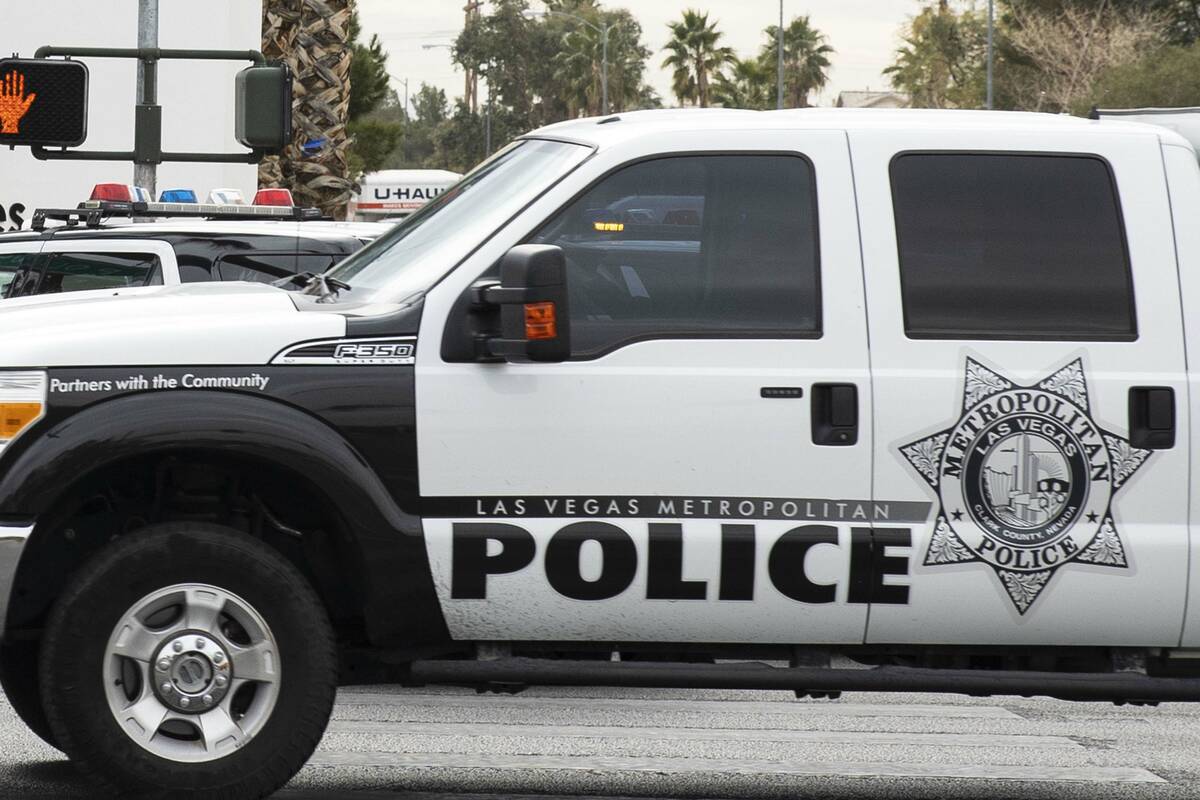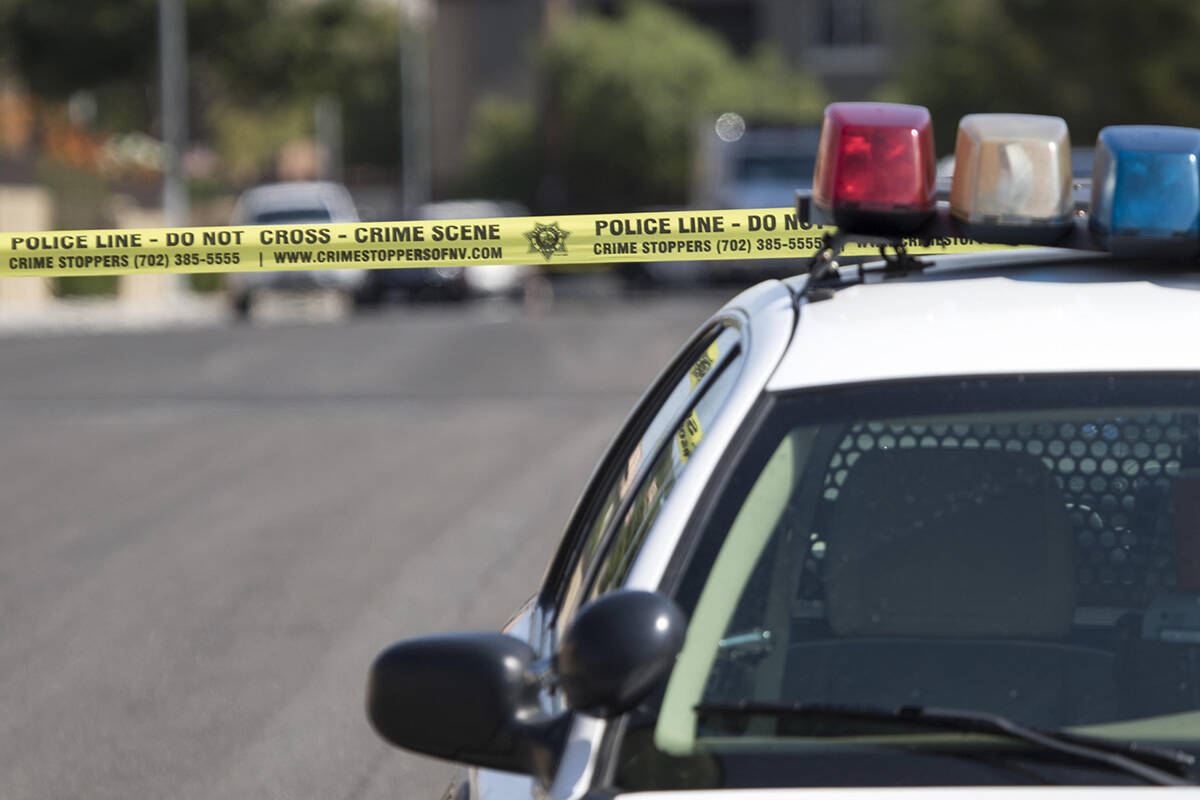Las Vegas police have restricted the access of independent journalists
The Metropolitan Police Department has blocked freelance reporters from access to information and crime scenes that legacy media freely obtain — a violation of the First Amendment according to independent journalists and the ACLU.
Doug Roberts, an independent journalist who works in Las Vegas, said Metro has prevented him from covering press briefings and being part of the department’s media email list. Ben Fama Jr., a videographer whose work has been contracted by Law&Crime Network for several years, said the department has kept him out of crime scenes and told him he doesn’t count as a member of the media.
The American Civil Liberties Union and the Reporters Committee for Freedom of the Press are critical of Metro’s current policies.
Metro does not have the right to say who is and isn’t press and for the government to do so is a violation of the First Amendment, said Jacob Smith, staff attorney for the ACLU of Nevada.
Reporters Committee wrote a July 22 letter to Sheriff Kevin McMahill, urging that Metro provide equal access for all journalists.
“The protections of the First Amendment apply equally to traditional and non-traditional journalists and news organizations, including freelance reporters and stringers,” the letter said.
Jennifer Nelson, a senior staff attorney for Reporters Committee, said the organization has yet to receive a response from Metro.
The Las Vegas Review-Journal requested an interview with McMahill, but Metro said he was not available. In a statement, the department said it “values the strong relationship it has established with the media and recognizes the importance of protecting the media’s constitutional rights.”
The department also said Roberts will be given access to on-scene media briefings.
‘Credentialed media invited’
When Metro sends out announcements for press events, they sometimes include a note about who can attend.
“All credentialed media representatives are invited to attend,” the department has said in past news releases. “Please ensure the representative has credentials or other identification that recognizes they are affiliated with a media outlet in their possession.”
That’s not a problem for reporters at long-standing news organizations like the Las Vegas Review-Journal, where staff ID cards have a Metro logo on the back that indicates they double as police-approved media credentials.
But the media landscape has changed. Stringers and freelancers are increasingly used by outlets, said Nelson, and some government agencies have relied on traditional definitions of who counts as a journalist and denied access.
Metro’s actions are “highly problematic,” she said. She questioned whether the department is taking its stance because it doesn’t like the way these reporters cover it. The situation crosses into a “really dangerous area” if officials restrict people whose reporting they dislike, she said.
“In addition to being inconsistent with the remit of the Department’s Office of Public Information (“OIP”) to ensure the public is informed about law enforcement-related issues, these actions raise serious First Amendment concerns,” Reporters Committee said in its letter to McMahill.
Metro said it does not issue media credentials and defended its practice of questioning journalists about their affiliation.
“The department has had issues in the past with individuals who are not journalists disrupting media briefings,” Metro’s statement said. “Asking the affiliation of journalists on a scene is an effort to protect the integrity of journalism as well as to keep the briefing secure for those who are in attendance.”
‘Recognized media only’
Fama provided a video in which he said he was talking to a public information officer, Misael Parra, at the scene of a September 2022 police shooting.
Fama showed his credentials, according to the video, but the officer said, “Unfortunately, we’re not going to be able to let you come with us.”
“Recognized media only,” the officer added.
Fama protested that he’d been at Metro press conferences before. “You’re a freelancer,” the officer replied.
The conflict became heated, and Fama used profanity in his apparent frustration in not being allowed access to the scene.
Fama said he hasn’t had a problem with Metro since the police shooting and a letter from a lawyer, but hasn’t been covering the department as much recently.
In a similar video provided by Roberts from this June after a police shooting, public information officer Laura Villicana told him he couldn’t be part of a briefing.
When he replied that it was on public property and mentioned the First Amendment, she permitted other journalists, but not Roberts, to bring their equipment inside the tape.
Metro declined a request for an interview with Villicana and did not respond to a request for comment from Parra.
Roberts wrote a letter a day later threatening litigation, according to a copy he provided to the Review-Journal. He also spoke with the ACLU.
Matt Christian, a lawyer for Metro, wrote in a letter to Roberts that his company, Live Core, which is affiliated with the news site Las Vegas Live, did not count as media. Christian cited a state law that says police must disclose criminal history information to journalists who work for newspapers, press associations or federally licensed TV and radio stations. Roberts’ company wasn’t any of those things, he wrote.
Roberts said his company’s footage has been published on local television, but the Review-Journal was unable to confirm that with stations. The Las Vegas Live website features stories about shootings, traffic problems, crashes and videos of police press briefings.
Smith, the ACLU attorney, sees problems with Metro’s restrictions.
Metro has relationships with news organizations, and when someone isn’t part of that relationship, he said, “I’m sure they’re harder to keep in line.”
“I think limiting access to crime scenes, limiting access to anything that Metro wants to say publicly … to only those organizations that Metro preapproved is dangerous, and it creates a limited viewpoint,” he added.
The “What Are They Hiding?” column was created to educate Nevadans about transparency laws, inform readers about Review-Journal coverage being stymied by bureaucracies and shame public officials into being open with the hardworking people who pay all of government’s bills. Were you wrongly denied access to public records? Share your story with us at whataretheyhiding@reviewjournal.com
Contact Noble Brigham at nbrigham@reviewjournal.com. Follow @BrighamNoble on X.


















